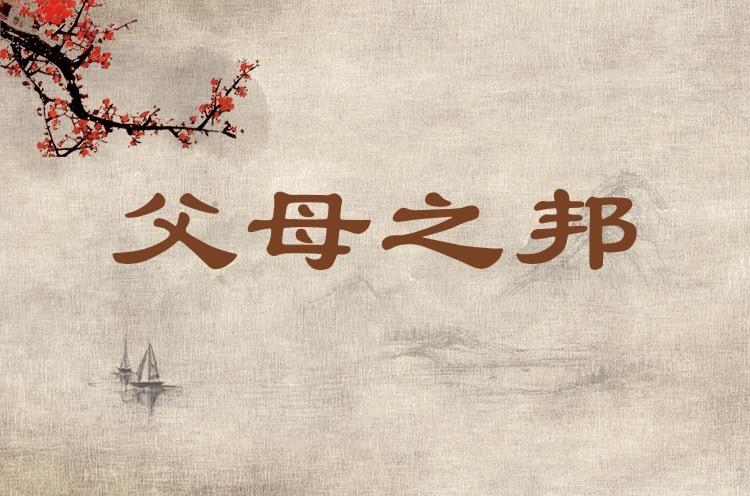父母之邦
Mother Country

父母所在之地、所属之国或自己的生身之地、所属之国,即故土;多指本国、祖国,与“桑梓”相类。此称呼蕴涵着基于亲缘和地缘的共同体意识与家乡之念相交织的天然情感,以及由此生发的爱国之心。而爱国是中华民族深厚持久的传统,是中华民族精神的核心,是每一个中国人的坚定信念和精神依托。
The mother country is the country where your parents are or came from, or where you were born and belong to; it is your homeland; it mostly refers to your own country and motherland, which is similar to sangzi (桑梓 native place). This name connotes the natural emotion of intertwining the sense of community based on kinship and geography with the love for hometown, and the patriotism that arises therefrom. Patriotism is a deep and lasting tradition of the Chinese nation, the core of the Chinese national spirit, a firm belief and a source of strength for every Chinese.
引例 Citations:
◎父母之邦,所宜尊敬。(《旧唐书·苗晋卿传》)
对于父母之邦,是应该尊敬的。
The motherland must be respected. (The Old Tang History)
◎安有父母之邦覆,而偷生苟活者!(《明史·义传六·冯云路附明睿》)
哪有父母之邦已经倾覆,自己反而苟且偷生的呢!
How can one keep alive after the motherland has perished? (The History of the Ming Dynasty)
◎小人等家口产业皆在本国,世受君恩,安忍反害父母之邦?(汪寄《海国春秋》第十五回)
我的家人和产业都在本国,世代蒙受君恩,怎么可能反过来忍心害我的父母之邦呢?
My family and properties are all in my country and we have benefited from the king for generations, so how could I be willing to harm my motherland? (Wang Ji: A History of the Builders in the State of Hai)
推荐:教育部 国家语委
供稿:北京外国语大学 外语教学与研究出版社
责任编辑:钱耐安





